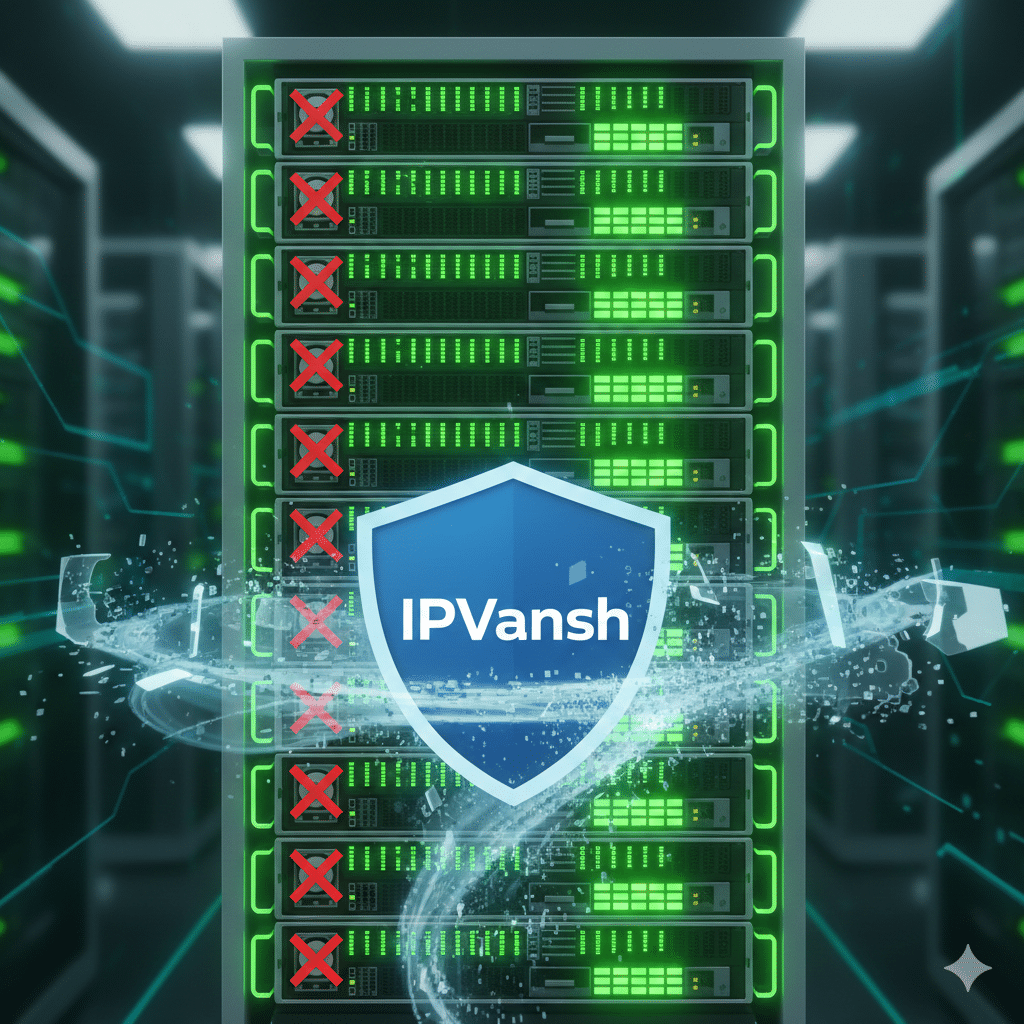IPVanish is making a big move in its commitment to privacy: the company is rolling out RAM-only VPN servers across its global network. Unlike traditional servers that store data on hard disks, these new servers use volatile memory — meaning all user data is automatically wiped whenever a server reboots or powers off. This upgrade brings IPVanish in line with top privacy-focused VPN providers and significantly strengthens its no-logs promise.
What Are RAM‑Only Servers — And Why They Matter
Traditional VPN servers typically rely on hard disk drives (HDDs) or solid-state drives (SSDs) to store data. While IPVanish already encrypts its disks and claims a strict no-logs policy, any data stored on a physical drive is theoretically more vulnerable — especially if a server is seized, improperly managed, or compromised.
RAM-only servers, on the other hand, keep all data in Random Access Memory (RAM), a volatile form of storage. When the server is rebooted, all data vanishes, leaving no traces behind. This “diskless” design ensures that no persistent logs or session histories remain, making it extremely difficult — if not impossible — for malicious actors or forensic analysis to recover user data from those servers.
In short: RAM-only servers significantly enhance user privacy by design.
IPVanish’s Rollout Plan: Locations & Timeline
IPVanish has already deployed RAM-only servers in 19 cities across nine countries, including:
United States
Australia
France
Germany
Hong Kong
Japan
Netherlands
Sweden
United Kingdom / England
The provider’s roadmap is ambitious: IPVanish aims to convert its entire network of 148 locations to RAM-only by 2027.
As of now, iOS and macOS users have access to these RAM-only servers. According to IPVanish’s public rollout plan:
Windows and Android support is expected by the end of 2025.
Apple TV and Fire TV devices are slated to get support in early 2026. (Tom’s Guide)
Privacy Gains & Technical Benefits
True No‑Logs Capability
With RAM-only servers, IPVanish further reduces the risk of data persistence. Even in extreme scenarios — like physical seizure of servers — there’s no stored data to extract.
Improved Durability & Efficiency
RAM-only architecture eliminates moving parts, making servers more robust, less prone to hardware failures, and easier to maintain.
Faster Updates & Reboots
Because there are no disks to reimage, deploying patches or updating the server infrastructure becomes faster and simpler.
Performance Benefits
IPVanish suggests that RAM-only servers can deliver lower latency and more efficient resource use, which could translate to smoother VPN performance.
Commitment to No‑Logs & Transparency
This infrastructure upgrade aligns with IPVanish’s broader strategy of increasing transparency and trust:
IPVanish has undergone an independent audit by Schellman Compliance LLC, which reaffirmed its no-logs policy.
The company publishes transparency reports through its Trust Center, offering visibility into data requests and its response practices.
Inactive accounts are anonymized after a set period, removing identifying information to further protect users.
How IPVanish Compares to Other VPNs on RAM‑Only Servers
Several leading VPN providers have already embraced RAM-only infrastructure:
ExpressVPN uses its “TrustedServer” technology, which runs entirely on RAM.
NordVPN and Private Internet Access (PIA) have also adopted diskless or RAM-only architectures for parts of their server networks.
However, not all leading VPNs use RAM-only servers. For instance, ProtonVPN opts not to rely exclusively on RAM, citing potential trade-offs and arguing that full-disk encryption can also provide strong protection.
By expanding into RAM-only architecture, IPVanish is reinforcing its position in the privacy-first segment of the VPN market.
Potential Challenges & Considerations
Timeline Risk: Converting the entire server network to RAM-only by 2027 is ambitious, and delays could affect the rollout.
Resource Load: While RAM is fast, volatile memory may require more frequent reboots, and managing a full RAM-based fleet could increase operational complexity.
User Awareness: Not all users may understand or value the distinction between disk-based and RAM-only servers. Educating customers will be key.
Device Support Lag: Users on Windows, Android, or TV platforms will have to wait for full RAM-only support, which could limit early adoption among some segments.
learn more than IPVanish Begins Rolling Out RAM‑Only Servers to Bolster Privacy
Conclusion
IPVanish’s rollout of RAM-only servers marks a meaningful step forward in its commitment to user privacy and no-log infrastructure. By storing all data in volatile memory that wipes automatically on reboot, IPVanish significantly reduces the risk of data retention or leakage — even under extreme scenarios like server seizure.
For users who prioritize anonymity and trust, this upgrade delivers real, structural assurance. And as the rollout continues across its global network (with full support expected by 2027), IPVanish is not just talking about privacy — it’s building it into the foundations of its service.



